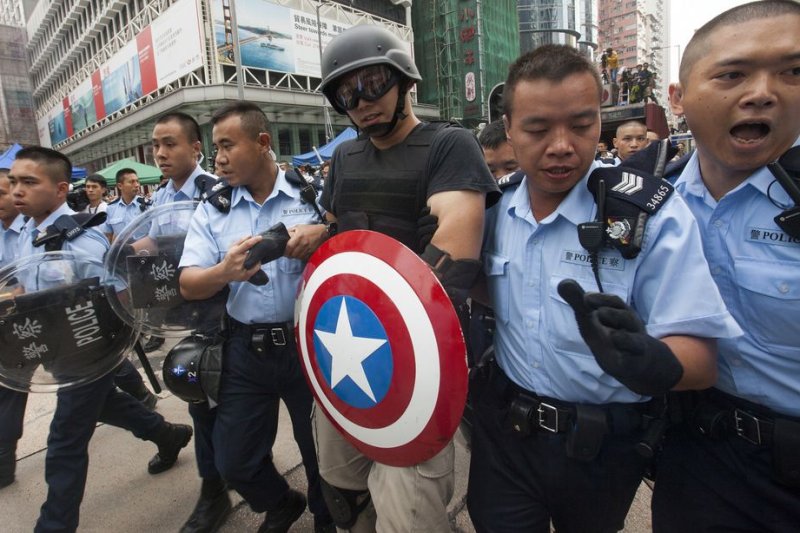Turkey's hazelnut farmers fume at Nutella 'monopoly'

Fulya OZERKAN
Tue, October 26, 2021, 9:13 PM·4 min read
Kneeling from dawn till dusk, the Turkish farmers picking most of the hazelnuts going into Nutella spreads complain of exploitation and meagre pay, setting up a clash over labour rights.
The little heart-shaped nut making Nutella such a guilty pleasure is a cherished commodity in Turkey, which accounts for 82 percent of global exports.
But this love is not shared by Mehmet Sirin, a 25-year-old from Turkey's mostly Kurdish southeast who travels to lush northern valleys filled with hazelnut trees to make a living during harvest season.
"We work 12 hours a day. This is a demanding job," said Sirin, a hood protecting him from a cold drizzle covering the leafy ground where the hazelnuts hide after ripening and falling from the trees.
"The hazelnuts we pick go abroad and come back in the shape of Nutella. They make more profits than us. This is exploitation," he said in the Black Sea town of Akyazi.
The world-famous spread is made by Italy's Ferrero confectionary, Turkey's top hazelnut purchaser. The global giant's other sweets include Ferrero Rocher chocolates and Kinder chocolate eggs.
But the Italian company is developing ill will in Turkey, where farmers get paid roughly 12 euros ($14) a day collecting nuts off the ground and stuffing them into huge sacks they then lug on their backs.
"They have a monopoly, they have a free hand," said Aydin Simsek, 43, a local producer watching his dozen or so workers pick nuts out of the corner of his eye.
"You see our conditions, how hard we work," he said, explaining that the price he gets for a kilogram (2.2 pounds) of hazelnuts has dropped to 22.5 liras ($2.30).
"This year, I will not sell my hazelnuts to Ferrero," he said.

- 'Market dynamics' -
Ferrero has six facilities and employs more than 1,000 people in Turkey, where it has been sourcing hazelnuts across the agriculture-rich country's northern Black Sea regions for the past 35 years.
In 2014, it acquired Turkey's Oltan Group -- a local market leader that procures, processes and sells nuts.
A Ferrero spokesman told AFP that the Italian company does not directly "own or manage farms in Turkey and does not source hazelnuts directly from farmers".
It "procures the hazelnuts it needs for its products respecting free market regulations and based on market dynamics," the Ferrero spokesman said.
This argument leaves the Turkish farmers unimpressed.
"For God's sake, they buy hazelnuts for 22 to 23 liras a kilo and sell them for 23 dollars," the Turkish Chambers of Agriculture's Istanbul branch president Omer Demir fumed.
"Turkey exports about 300,000 tonnes of hazelnut to the world. How strange that only foreign companies earn profits from this business," he said with bitter irony.
Demir said Ferrero and other global companies sourcing Turkey's hazelnuts provide tools and fertilisers for the farmers, paying for their harvests in advance.
They "are running their own show", Demir said, calling on Turkey's competition authority to intervene.
"Otherwise, they will control everything everywhere and we will come to a point where we cannot sell our product to anyone else but them," Demir said.
- 'I needed the cash'-
Producer Cabbar Saka already feels like he has no choice, selling his entire month's harvest to traders working on behalf of the Italian company.
"I needed the cash because my daughter was getting married," Saka said.
"Producers are scared of speaking out against Ferrero," said Sener Bayraktar, who heads Akyazi's chamber of agriculture.
"They fear that if they speak out, they will no longer be able sell their hazelnuts."
For a solution, Bayraktar wants the Turkish Grain Board -- a state regulator that oversees pricing, storage and payments -- to raise its quotas so that producers can sell more nuts, diversifying their client base.
The Turkish government has said it is ready to help, raising local hopes.
In Akyazi, where farmers dry their harvest on tarpaulins spread across their front yards, producer Simsek said he wants to break his dependence on the Italians as soon as he can.
"Had Nutella been buying our hazelnuts on fair terms, if it didn't oppress us, we would be proud and eat it ourselves," he said.
"But the way they operate, we can't stomach Nutella anymore."
ach-fo/zak/dl


Turkey's hazelnut farmers fume at Nutella 'monopoly'Turkish hazelnut producer Aydin Simsek says Nutella has "a monopoly, they have a free hand" (AFP/Ozan KOSE)






















